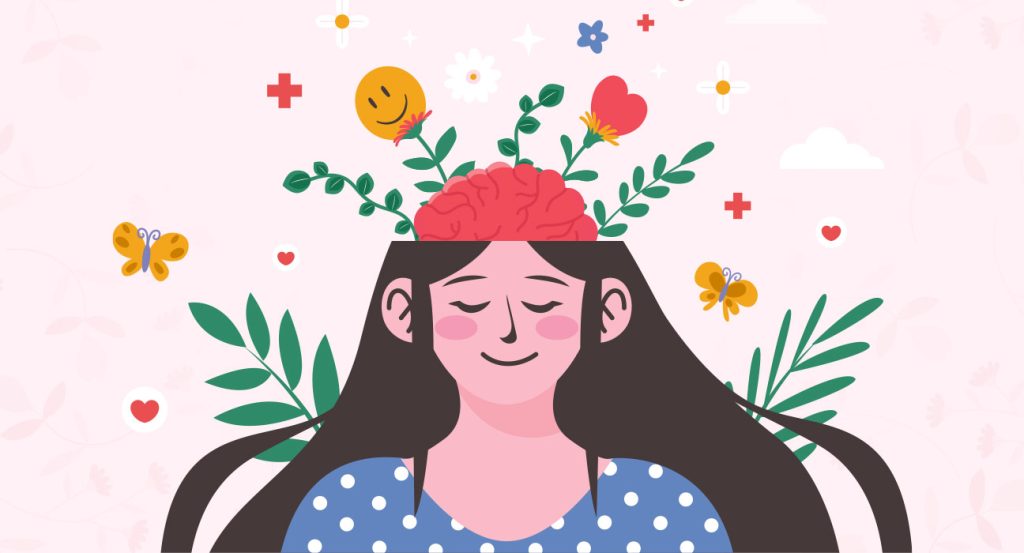Holidays
A Guide for World Mental Health Day 2023
World Mental Health Day is observed on October 10th every year. It is a global initiative that aims to raise awareness about mental health issues, reduce the stigma surrounding mental health, and advocate for better mental health support and resources.
The day provides an opportunity for individuals, communities, organizations, and governments to come together and focus on mental health awareness and well-being. It also encourages open discussions about mental health, promotes self-care practices, and emphasizes the importance of seeking help when needed.
History of World Mental Health Day
The World Federation for Mental Health (WFMH) was established in 1948, a pivotal year in global mental health. This organization emerged in the wake of World War II, recognizing the urgent need for a coordinated effort to address mental health on a global scale. Committed to promoting mental health awareness, preventing mental disorders, and improving mental health care worldwide, the WFMH laid a foundation for the international mental health community.
In 1992, the World Federation for Mental Health introduced World Mental Health Day as a significant milestone in its mission. October 10 was chosen as the designated date for this observance, intentionally aligning with the anniversary of the WFMH’s formation on October 10, 1948. This date was selected with the aim of emphasizing the enduring commitment to mental health advocacy on a global scale.
Importance of Mental Health Awareness
Mental health awareness holds immense significance in today’s society for several compelling reasons:
- Personal Well-being and Quality of Life: A healthy mental state enables individuals to navigate life’s challenges, build meaningful relationships, and pursue personal goals with a sense of purpose and resilience.
- Reducing Stigma and Discrimination: By openly discussing mental health, we challenge misconceptions and stereotypes, creating an environment where individuals feel safe and supported in seeking help.
- Early Intervention and Treatment: Recognizing the signs of mental distress enables individuals to seek professional help, preventing conditions from worsening or escalating into crises. Early intervention can lead to more effective and less invasive treatment options, ultimately improving long-term outcomes for individuals living with mental health disorders.
- Improved Productivity and Functionality: When individuals are supported in managing their mental health, they are more likely to perform optimally in their professional and personal lives.
- Preventing Long-term Consequences: Mental health awareness promotes early detection and intervention, potentially averting more severe consequences such as chronic mental health disorders, substance abuse, or even self-harm.
Ways to Celebrate World Mental Health Day
Celebrating World Mental Health Day is a wonderful way to show support for mental health awareness and promote well-being. Here are some meaningful ways to participate:
- Organize a Community Event: Host a local event focused on mental health awareness. This could be a seminar, panel discussion, art exhibition, or mindfulness workshop. Invite mental health professionals, advocates, and community members to share insights and resources.
- Promote Self-Care Practices: Encourage self-care by sharing tips and resources for managing stress, practicing mindfulness, and maintaining a balanced lifestyle. Create and distribute self-care kits with items like relaxation tools, journals, and motivational materials.
- Educational Workshops and Webinars: Organize workshops or webinars that provide practical information on topics like stress management, anxiety reduction techniques, or how to support a loved one with a mental health condition.
- Physical Activity and Well-being Sessions: Promote the connection between physical activity and mental health. Organize activities like group walks, yoga classes, or meditation sessions. Engaging in exercise can be a powerful way to boost mental well-being.
- Social Media Campaigns: Launch a social media campaign to spread awareness. Share informative posts, personal stories, and resources using relevant hashtags to increase visibility.
What Is the World Mental Health Day Theme for 2023?
World Mental Health Day 2023 is an opportunity for people and communities to unite behind the theme ‘Mental health is a universal human right” to improve knowledge, raise awareness and drive actions that promote and protect everyone’s mental health as a universal human right.
A person’s mental health condition should never be used to deny them their human rights or to exclude them from decisions about their own health. Nonetheless, people with mental health conditions continue to face a wide range of human rights violations around the world. Many are excluded from community life and discriminated against, while many more are unable to obtain the necessary mental health care or can only obtain care that violates their human rights.
WHO continues to collaborate with its partners to ensure that mental health is valued, promoted, and protected, and that immediate action is taken to ensure that everyone has the opportunity to exercise their human rights and receive the quality mental health care they require. Join the World Mental Health Day 2023 campaign, using the hashtag #WorldMentalHealthDay, to learn more about your fundamental right to mental health and how to protect the rights of others.
Some Key Messages of World Mental Health Day 2023
- Good mental health is an integral part of our overall health and well-being: Good mental health allows us to cope with challenges, connect with others, and thrive throughout our lives. It’s vital and deserves to be recognized and respected.
- Mental health is a universal human right: Human rights are universal and serve to promote and protect people’s rights to dignity, autonomy, and community inclusion.
- Everyone has the right to access quality mental health care: Because mental health is a universal human right, we all have the right to access quality treatment that meets our needs and respects our rights across our lifetimes.
- Mental health conditions are a significant threat to the well-being of young people: Mental health conditions affect one in seven adolescents globally, with depression emerging as a leading cause of adolescent illness and disability.
- We must challenge the stigma and discrimination surrounding mental health: We all have the right to live our lives free from stigma and discrimination in places like schools and workplaces.
- We all have the right to live independently and be included in the community: People must have access to good mental health services as well as education, income generation, housing opportunities, and social support in order to live independently and be included in their communities.
- Good quality community mental health services and support are crucial for all our futures: Mental health and well-being are fundamental to enjoy a good and meaningful life. It is vital to ensure that everyone can access community mental health services and support. In particular, access to mental health support and resources in early life can make a real difference to the health and well-being of young people and adults in later life. This should be promoted as a priority in all countries.
- Recognising mental health as a universal human right empowers people to stand up for their rights – and for those around them: If people are not aware of their human rights, they are not able to advocate for them. By including people with lived experience of mental health conditions in decision-making on mental health issues, new policies, laws, and service planning can be positively influenced and guided by their expertise.
- You might know your mind – but do you know your rights? Every person’s mind is wonderful, complex, and different. But our rights are the same: By knowing your mental health rights, you can stand up for what’s right—for you and for others.
Conclusion
In celebrating World Mental Health Day, we acknowledge that mental health is not a solitary endeavor; it is a collective responsibility. Each act of understanding, each conversation, and each gesture of support contributes to a more inclusive and empathetic society. Together, we can dismantle the barriers of stigma and discrimination that too often surround mental health.






